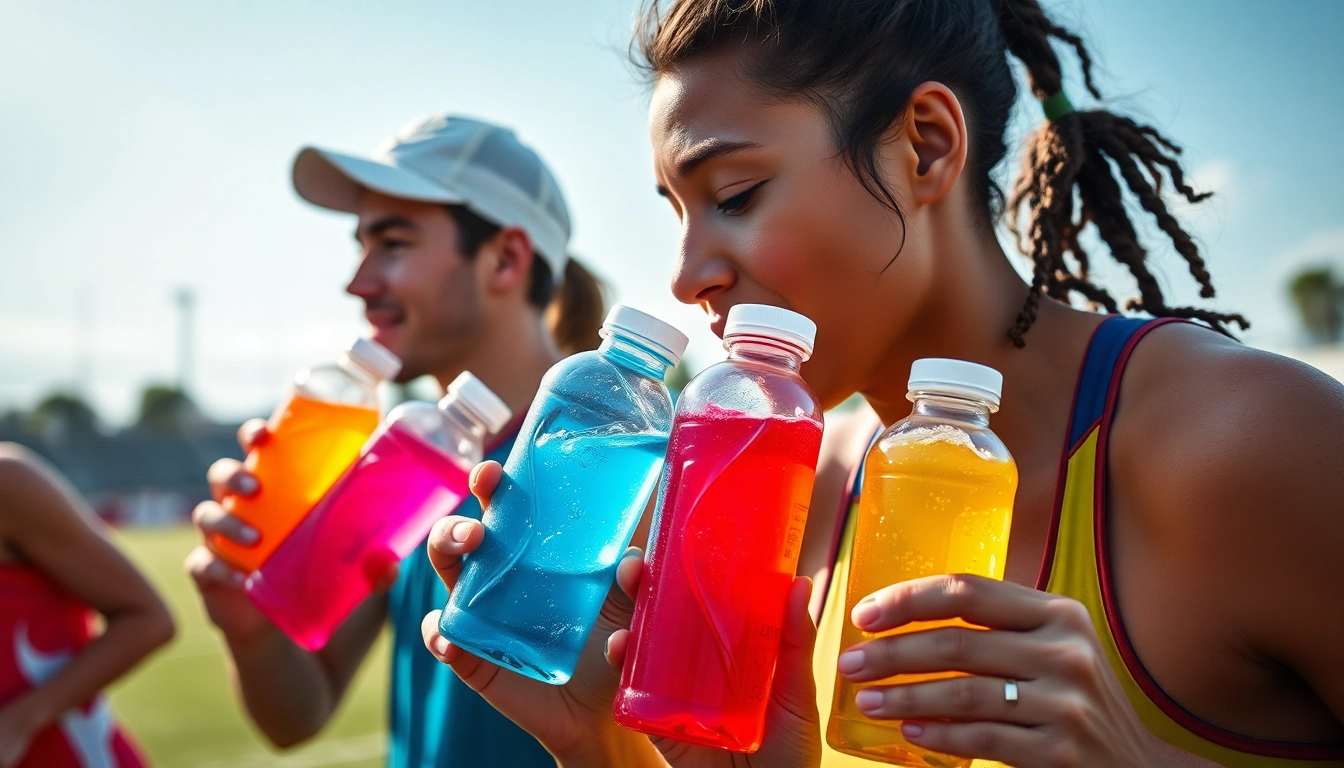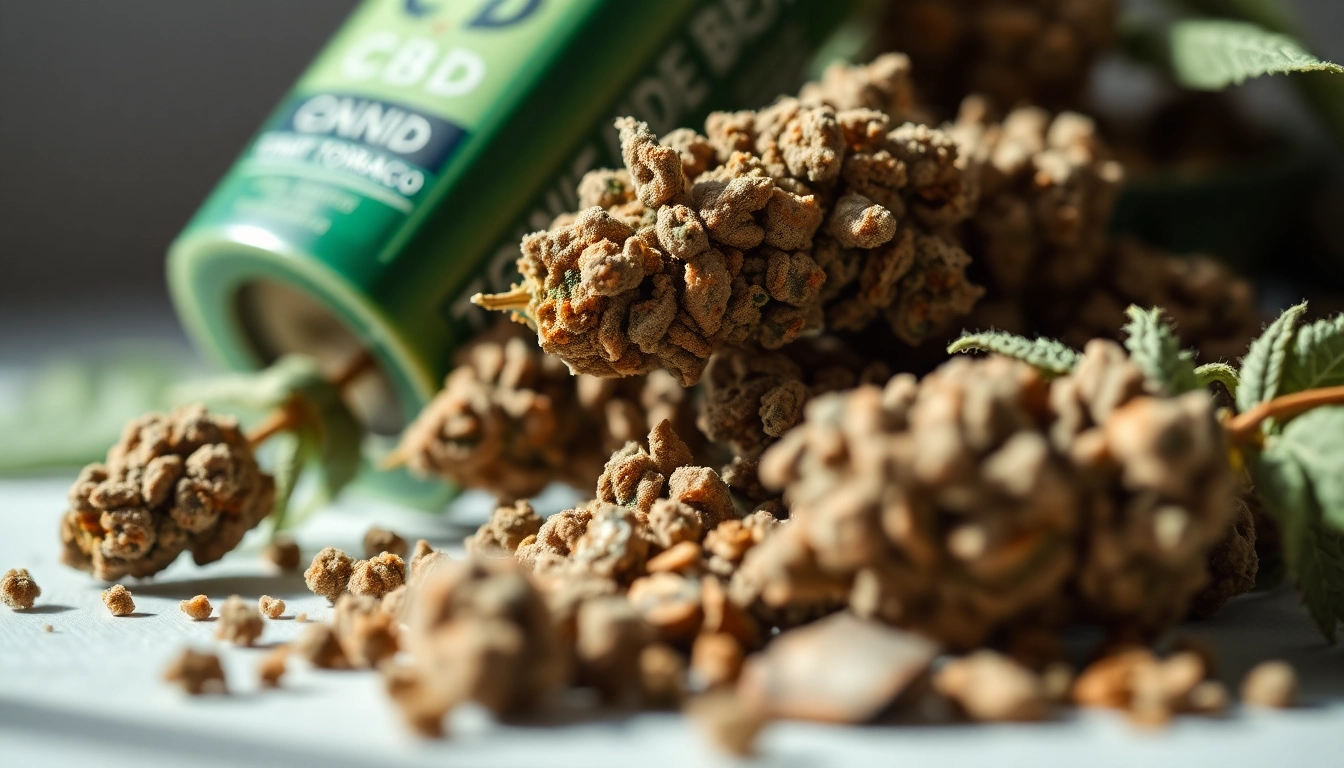Understanding Sports Drinks
Sports drinks are much more than just sugary beverages designed to quench thirst; they are functional fluids engineered to address specific hydration needs. Particularly benefiting athletes and active individuals, these drinks serve the vital purpose of replenishing fluids, providing energy, and restoring electrolytes lost during exercise. In digging deeper into the world of sportsdrink, we will explore their benefits, types, ingredients, and guidelines for optimal use.
What Are Sports Drinks and Their Benefits?
Sports drinks are typically water-based solutions containing electrolytes and carbohydrates designed for those engaged in intense physical activity. They help facilitate rehydration, improve endurance, and maintain performance. The primary benefits include:
- Hydration: Helps to replenish fluids lost through sweat.
- Electrolyte Replacement: Supplies essential minerals such as sodium, potassium, and magnesium.
- Energy Boost: Provides sugars that can be quickly utilized for energy during prolonged exercises.
- Enhanced Recovery: Aids post-exercise recovery by reducing muscle cramps and soreness.
Types of Sports Drinks: Which Is Right for You?
Sports drinks can be categorized primarily into three types:
- Isotonic Drinks: Contain roughly the same concentration of salt and sugar as the body’s own fluids. These drinks are ideal for athletes needing hydration and energy replacement during endurance events.
- Hypotonic Drinks: Have a lower concentration of salt and sugars, making them ideal for quick rehydration without the extra calories.
- Hypertonic Drinks: Contain higher concentrations of carbohydrates and are generally used to supplement energy rather than for hydration reasons.
Choosing the right type of sports drink depends upon the intensity and duration of your activity. For short sessions, a hypotonic drink might suffice, whereas endurance athletes may lean towards isotonic solutions.
Common Ingredients in Sports Drinks
Sports drinks generally contain a combination of:
- Water: The main hydrating ingredient.
- Electrolytes: Sodium, potassium, magnesium, and calcium help maintain fluid balance and nerve function.
- Carbohydrates: Usually in the form of sugars like glucose or sucrose for quick energy.
- Colorings and Flavorings: Added to improve taste, though some brands are now focusing on natural options.
Understanding these ingredients helps athletes make informed choices in line with their specific hydration and energy needs.
How Sports Drinks Help with Hydration
Hydration is critical to optimal athletic performance, particularly during prolonged exercise. The following sections elaborate on the role sports drinks play in achieving proper hydration.
The Role of Electrolytes in Sports Drinks
Electrolytes are minerals that carry an electrical charge and are vital for various bodily functions, particularly nerve transmission and muscle contraction. When sweating, we lose these essential electrolytes. Sports drinks replenish the lost electrolytes, which is particularly important for maintaining endurance during extended activities.
Effects of Dehydration on Athletic Performance
Dehydration can significantly impair performance, leading to fatigue, reduced coordination, and an increased risk of heat-related illnesses. Studies have shown that just a 2% loss of body weight due to sweating can decrease performance by approximately 20%. This underscores the importance of effective rehydration strategies using sports drinks.
When to Choose Sports Drinks Over Water
While water is often sufficient for short, moderate-intensity activities, sports drinks become necessary under certain conditions:
- During workouts lasting longer than an hour.
- In hot and humid conditions where significant sweating occurs.
- When engaging in high-intensity training or competition.
Under these scenarios, sports drinks can effectively replenish lost electrolytes and sustain energy levels better than water alone.
Evaluating Popular Sports Drink Brands
With a plethora of sports drink options available in the market, it becomes essential to evaluate their respective benefits, consumer feedback, and pricing to determine the best choice.
Top Rated Sports Drinks: A Comparative Analysis
Some of the most popular sports drinks include:
- Gatorade: One of the oldest and most trusted brands, known for its range of flavors and electrolyte content.
- BodyArmor: A newer player focusing on natural ingredients and coconut water as a base.
- Powerade: Offers a variety of options similar to Gatorade, often at a lower price point.
- Pedialyte: Originally intended for children, many adults find this drink effective for hydration due to its high electrolyte content.
When choosing a brand, consider the ingredients, nutritional content, and flavor preferences to ensure it meets your hydration needs effectively.
Consumer Reviews: What Athletes Are Saying
Online reviews provide candid insights into product performance from actual users. Many athletes praise Gatorade for its effectiveness in replenishing electrolytes during high-intensity workouts, whereas BodyArmor has been lauded for its commitment to natural ingredients. Understanding user experiences can guide you in selecting the best sports drink for your needs.
Price Versus Performance: Is It Worth It?
When evaluating sports drinks, consider both price and performance metrics. While some drinks come with a premium price tag, they may offer superior hydration benefits, energy replenishment, or ingredient quality. It’s essential to weigh these factors against your budget and performance needs.
DIY Sports Drink Recipes
For those preferring a more personalized approach to hydration, homemade sports drinks offer a fantastic alternative. These can be tailored to individual taste preferences and dietary needs.
Natural Ingredients for Homemade Sports Drinks
Creating a sports drink at home can be done with simple ingredients. Here’s a basic recipe:
- 1 liter of water
- 2 tablespoons of honey (for carbohydrates)
- 1/2 teaspoon of salt (for sodium)
- The juice of one lemon (for potassium and flavor)
Mix these ingredients to create a refreshing and hydrating drink suitable for use during or after workouts.
Benefits of Making Your Own Sports Drink
Homemade sports drinks can be beneficial because they are:
- Cost-Effective: Generally cheaper than commercial options.
- Customizable: Can be made to suit individual taste and dietary restrictions.
- Health-Conscious: Allows control over added sugars and artificial ingredients.
This approach empowers athletes to have their stand of hydration ready as needed.
Flavors You’ll Love: Personalizing Your Recipes
Experimenting with flavors is part of the fun in creating your DIY sports drinks. Consider adding:
- Fruit Purees: Strawberries, mangoes, or blueberries can provide natural sweetness and flavor.
- Herbs: Mint or basil can add a refreshing twist.
- Electrolyte Tablets: Dissolving these in your homemade mixture can enhance electrolyte content.
These personalized tweaks can elevate the taste while ensuring you maintain adequate hydration.
Best Practices for Consuming Sports Drinks
Understanding when and how to consume sports drinks is equally essential as choosing the right product. Proper timing and amounts can maximize the benefits of these beverages.
Timing Your Sports Drink Intake
For optimal performance, consider the timing of your sports drink consumption:
- Before Exercise: Consume about 16-20 ounces of sports drink 1-2 hours before starting.
- During Exercise: Sip on about 7-10 ounces every 10-20 minutes, depending on the intensity of your activity.
- After Exercise: Replenish with 16-24 ounces within 30 minutes of finishing.
This approach ensures your body remains properly hydrated and refueled throughout the workout.
How Much Sports Drink Should You Consume?
The amount of sports drink to consume can depend on various factors including body weight, duration of activity, and environmental conditions. A general guideline suggests:
- Light Activity (less than an hour): Water is typically sufficient.
- Moderate Activity (1-2 hours): About 16-20 oz throughout.
- Intense Activity (over 2 hours): Aim for a steady intake of 20-30 oz during the workout.
Monitoring your hydration levels and adjusting based on individual needs is essential.
Hydration Strategies During Long Training Sessions
For prolonged training, plan to integrate various hydration strategies:
- Sip, Don’t Gulp: Take smaller sips instead of large gulps to avoid gastrointestinal discomfort.
- Use a Hydration Pack: For easy access to fluids while on the move.
- Track Fluid Loss: Weigh yourself pre- and post-exercise to assess fluid loss in pounds and adjust intake accordingly.
These strategies will help ensure optimal hydration and performance, keeping you at the top of your game.



